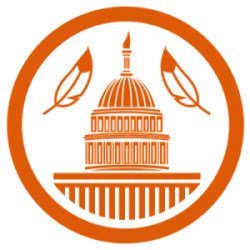Lessons To Be Drawn From Regulated iPoker in the US

Online poker is currently legal in three U.S. states, namely Nevada, Delaware and New Jersey. Since regulation was enacted back in 2013, all three states have had the chance to issue operators with licenses, and get players gambling. Those who follow the iGaming industry have also had the opportunity to learn from their successes and failures. Now, as more states consider following in the footsteps of New Jersey, Nevada and Delaware, it’s worth examining the good and bad of online poker in these regulated states, and what can be learned from their regulated industries. Consequently, the following five points would seem to offer those states currently contemplating online poker legislation the best prospects of success.
1: Choose Operators with Experience
New Jersey and Nevada both allowed brand new companies to form and provide online poker. Within a year, one business, Ultimate Gaming, was out of business, and newcomer Real Gaming is struggling to stay afloat in Nevada. Online poker is a complex industry, and those who are new to it typically just don’t have the experience needed to be profitable in those states where online poker is just beginning. Working with existing operators who have had success with online poker in other countries is a better use of resources for states. Not only do established online poker providers have more experience, but they also have already known brands that foster player confidence.
2: Go for Full iGaming
Legalizing online poker has not proven as profitable as the various states had hoped, and in Nevada where only poker has been legalized, many gamblers lament not being able to play online casino games. Furthermore, Delaware and New Jersey have increasingly seen their iPoker revenues decrease over the past two years, and in New Jersey iPoker’s share of the iGaming market share has fallen 22.4% over the past year to its present level of around 20%. In other words, to truly make online gaming a lucrative endeavor for operators and states, it’s best to take a well rounded approach with casino games, slots, poker and perhaps daily fantasy sports betting.
3: Be Realistic About Revenues
Across the board, expectations regarding the amount of revenue that online poker will bring to a state have been exaggerated, leading to frustrations among lawmakers and taxpayers alike. Ahead of legislation in New Jersey, for instance, annual revenue predictions floated about were in the one billion dollar range. In actual fact, that figure turned out to be closer to around $12 million per month, or around one-tenth of pre-regulation forecasts. States that want a more realistic idea of how much revenue they can potentially bring in with online poker should therefore examine the revenues brought in by Delaware, New Jersey and Nevada and then use their population size and demographics to try and come up with concrete, realistic revenue expectations.
4: Trust Geolocation and Remote Verification
What is working in states where online poker is legal are the geolocation and remote verification technologies being used to secure sites. In the three states were online poker is located, there have been zero instances of underage gambling detected. The state-of-the-art controls that are already in place should be readily adopted by other states because they have proven to be a success.
5: Should Not Expect to Rush Legislation
Online poker is a complex issue, and it’s not one that can be handled well with speed. Lawmakers need to be realistic about how quickly they can pass and implement online poker laws in order to prepare their constituents for the needed time for start up. In the case of regulated states, at least 18 months of discussion, hearings, voting and preparation were needed to get a bill into law and online gambling sites finally up and running.
Challenges Going Forward
In the meantime, there are a number of other factors which could scupper attempts by unregulated states to benefit from the experiences of Nevada, Delaware and New Jersey, and build an expanded, thriving online poker market across the U.S. One of the biggest threats comes in the guise of the the Restoration of America’s Wire Act (RAWA), which is an anti-online gambling bill whose aim is to see all online gambling activities in the U.S. banned at a federal level.
On December 9th, RAWA will receive a hearing in the House Oversight Committee where, as the bill’s chief sponsor, Rep. Jason Chaffetz can expect the continued support and backing of billionaire casino mogul Sheldon Adelson and his Coalition to Stop Internet Gambling (CSIG). The title of the hearing plays upon the fear of allowing a potential casino into every home, and is entitled “A Casino in Every Smartphone – Law Enforcement Implications.” Observers can expect more scaremongering from the anti-iPoker camp, with some of their likely warnings centering around the potential dangers of money laundering, financing of terrorism activities, and out-of-control gambling addiction amongst underage players.










